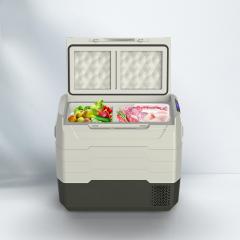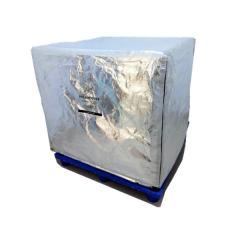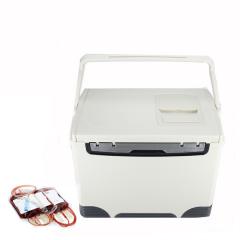1.2 Reducing Waste and Lowering Costs
1. Effective temperature control management can reduce losses and waste caused by food spoilage and damage. By monitoring and adjusting temperatures, the shelf life of food can be extended, reducing returns and losses, and improving supply chain efficiency.
2. Implementing temperature control management can lower operating costs. By optimizing energy consumption during storage and transportation and reducing potential issues such as refrigerant leaks, sustainable logistics goals can be achieved.
1.3 Regulatory Requirements and Compliance
1. Many countries and regions have strict temperature control regulations for food storage and transportation. Non-compliance with these regulations can lead to legal disputes, economic losses, and damage to the company's reputation.
2. Food retail companies need to follow international and domestic standards, such as HACCP (Hazard Analysis and Critical Control Points) and GMP (Good Manufacturing Practices), to ensure food safety and quality.
1.4 Customer Satisfaction and Brand Reputation
1. Consumers are increasingly demanding fresh and safe food. High-quality temperature control management can ensure the quality and taste of food during distribution, enhancing customer satisfaction.
2. Providing consistently high-quality products helps build and maintain a good brand image, enhances market competitiveness, and attracts more loyal customers.
1.5 Market Competitive Advantage
1. In the highly competitive food retail industry, an efficient temperature control management system is a key differentiator. Companies with excellent temperature control capabilities can provide more reliable services and meet customer needs.
2. Temperature control management is also a significant way for food retailers to showcase their technological innovation and sustainable development, establishing a competitive advantage in the market.
1.6 Environmental Friendliness and Sustainable Development
1. Through precise temperature control management, food retail companies can reduce unnecessary energy consumption and greenhouse gas emissions, aligning with global sustainability trends.
2. Using environmentally friendly refrigerants and temperature control technologies can further reduce environmental impact, helping companies fulfill social responsibilities and enhance their image.
2. Pharmaceutical Temperature Control
1.maceuticals are special products, and their optimal temperature range directly affects people's safety. During production, transportation, and storage, temperature significantly impacts the quality of pharmaceuticals. Inadequate storage and transportation, especially for refrigerated medicines, can lead to reduced efficacy, spoilage, or increased toxic side effects.
2.For example, storage temperature affects pharmaceutical quality in several ways. High temperatures can affect volatile components, while low temperatures can cause some pharmaceuticals to spoil, such as emulsions freezing and losing their emulsifying capacity after thawing. Temperature changes can alter the properties of pharmaceuticals, affecting oxidation, decomposition, hydrolysis, and the growth of parasites and microorganisms.
3.The storage temperature greatly influences the quality of pharmaceuticals. High or low temperatures can cause fundamental changes in pharmaceutical quality. For instance, injection solutions and water-soluble drugs can crack if stored below 0°C. Different pharmaceutical states change with temperature, and maintaining optimal temperature conditions is essential for quality assurance.
4.The impact of storage temperature on the shelf life of pharmaceuticals is significant. The shelf life refers to the period during which the pharmaceutical quality remains relatively stable under specific storage conditions. According to an approximate formula, raising the storage temperature by 10°C increases the chemical reaction speed by 3-5 times, and if the storage temperature is 10°C higher than the specified condition, the shelf life reduces by 1/4 to 1/2. This is particularly critical for less stable drugs, which may lose efficacy or become toxic, endangering users' safety.
3. Real-Time Temperature Control and Adjustment in Cold Chain Transport
In food and pharmaceutical cold chain transport, refrigerated trucks and insulated boxes are commonly used. For large orders, refrigerated trucks are generally chosen to reduce transport costs. For smaller orders, insulated box transport is preferable, offering flexibility for air, rail, and road transport.
- Refrigerated Trucks: These use active cooling, with refrigeration units installed to regulate the temperature inside the truck.
- Insulated Boxes: These use passive cooling, with refrigerants inside the boxes to absorb and release heat, maintaining temperature control.
By selecting the appropriate transport method and maintaining real-time temperature control, companies can ensure the safety and quality of their products during cold chain logistics

 English
English  français
français русский
русский italiano
italiano español
español português
português العربية
العربية 日本語
日本語 한국의
한국의 magyar
magyar










